I have never met a group more reliable to have a good meal with–and it should be said, a few drinks with–than poets…Poets tend to love the details, the process of food, the languid hours of a good meal–meaning not just the vittles but the talk, often loud, that accompanies it.
This may also be because the best poems, like the best meals, are made from scratch. Both rely on the seasons, but also human history; both also consist of tradition, on knowledge passed down either from books or from generation to generation, hand to mouth. In poetry, there are few shortcuts, but there are secrets. Food and poetry each insist that we put our own twists and ingredients in the mix: we make each dish, like a good poem, our own. With any luck, the result is both surprising and satisfying, exactly what we wanted, perhaps without even knowing it.
However, we know well the ways in which our society has abandoned good food, and too often poetry entirely–as if it grows without water and light, and that our neglect won’t reveal itself. “Can one be inspired by rows of prepared canned meals?” asked Alice B. Toklas, who knew her way around both poetry & a kitchen. “Never. One must get nearer to creation to be able to create, even in the kitchen.”
Luckily, there seems to be a surge in returning to real food–some would say “slow food,” as opposed to fast–and if there’s hope for what we insist we and our children eat, this may mean a world where poetry too can return to the table, where not just conversation, but culture is made.
In one crucial way, food differs from writing: food is temporary. It is exactly this fact, as many a writer will tell you, wherein the sublime pleasure of cooking really lies. After a long day of trying to be immortal, or at least get to the end of the blank page or screen–rather symbolically hitting SAVE–there is something satisfying in getting your hands dirty, in making something that has, necessarily, and obvious end point. With food, the better it is, the less it sticks around. Temporariness is one of food’s best qualities, making it something other than the chore that good writing can be. Thus is the opposite of good reading, in which the better it is the faster it flies.
Food too can be where we experience, or even reclaim, culture. Not only is it where we declare our values–or what we like–but also some of what we aspire to. In the words of Julia Child, “How can a nation be great if its bread tastes like Kleenex?”
—Selections from “The Hungry Ear: Poems of Food and Drink” by Kevin Young
I first ate this salad at one of our favorite neighborhood restaurants; a gem on a menu already crowded with excellent salads. It’s perfect for a crisp day–bright from lemon and parsley, crunchy with celery root and fennel, and creamy from the olive oil and shards of pecorino.
At home, I experimented until I was happy with the balance of ingredients. Now, I make this salad at least once a week. Sometimes I eat it alone, as a light-ish lunch. I’ve served it with roast salmon. I imagine it would be delicious with fried or roast chicken, as a classier alternative to coleslaw. It also travels great–good for a desk lunch, plane or train picnic, or a potluck.
This salad can (and probably should) be made a few hours ahead, to give it time to rest and meld. It’s good for a few days in the refrigerator. (On the third day, the salad won’t look as bright and shiny–I might not show it off to guests–but it’s still tasty. The celery root and fennel will still be crunchy. I can tell you this for certain, since I’m currently sitting at my office desk, eating three day-old salad out of a quart container.) I use a mandoline to cut all three vegetables, plus the pecorino. I recommend using your best, finishing olive oil–you’ll really taste it and it makes a difference. Serves 6.
- ingredients:
- 1 small bulb celery root
- 1 large fennel bulb
- 1 small red onion
- 1 large lemon (or 5 tablespoons lemon juice)
- (a shallow 1/2 cup or 15 grams) chopped parsley
- (a heaping 1/2 cup or 80 grams) thinly sliced pecorino cheese
- 1/4 teaspoon crunchy sea salt
- 25 turns black pepper
- 3 tablespoons pumpkin seeds
- 7 tablespoons quality olive oil
- procedure:
- First, prepare the vegetables. Start by peeling the celery root. If you have a mandoline with a julienne blade, use that to cut the celery root. Otherwise, by hand; aim for pieces 1/8-inch x 1/8-inch. Next, trim the fennel so that just the bulb remains. (If you have fronds, you can chop and add them to the salad.) Cut off the heel of the bulb, and then slice the bulb in half lengthwise. On a mandoline or by hand, slice each half crosswise, more thinly than the celery root. Cut the red onion in half lengthwise, and slice into wispy half moons. Toss the vegetables into a large mixing bowl.
- Juice the lemon into the mixing bowl. With your hands, mix the juice evenly into the vegetables. Chop the parsley, and add it to the bowl. Thinly slice the pecorino–I used a mandoline again, but you can also do this by hand. Add the salt, pepper, pumpkin seeds, and olive oil to the bowl. Use your hands (or tongs) to evenly blend the salad ingredients. Divide the salad between plates; enjoy. You may drink the dressing that collects at the bottom of your bowl. I won’t judge.
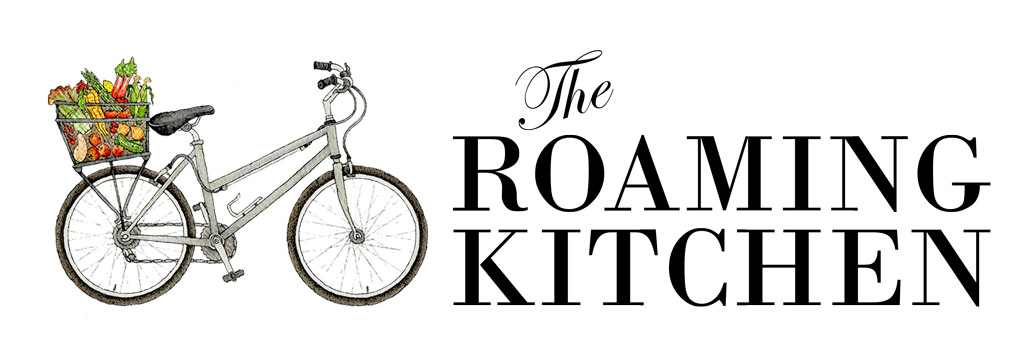
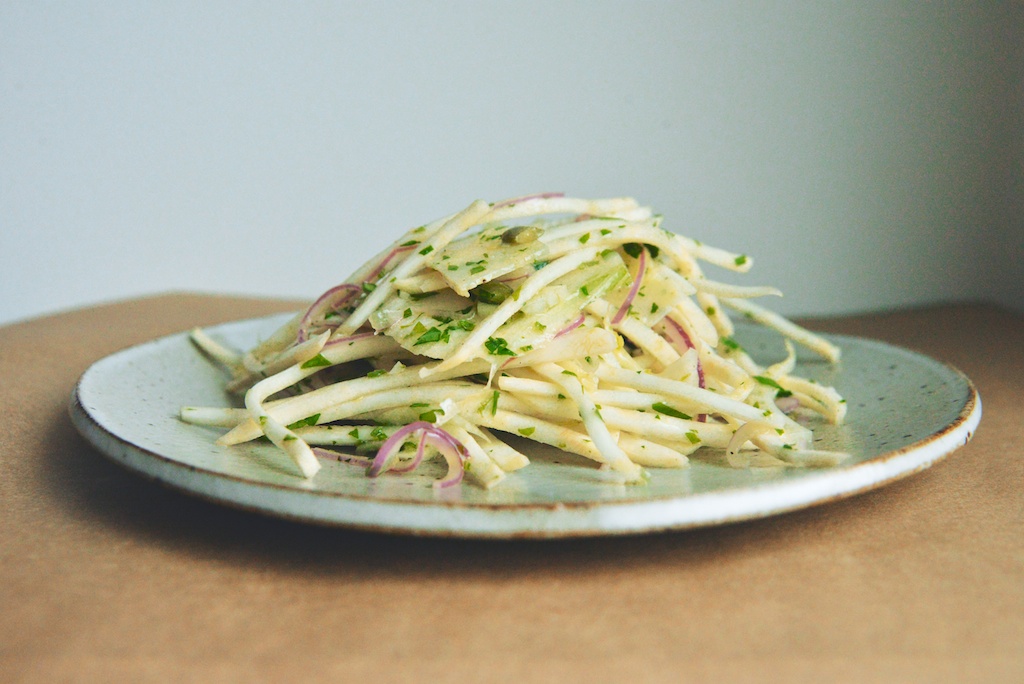
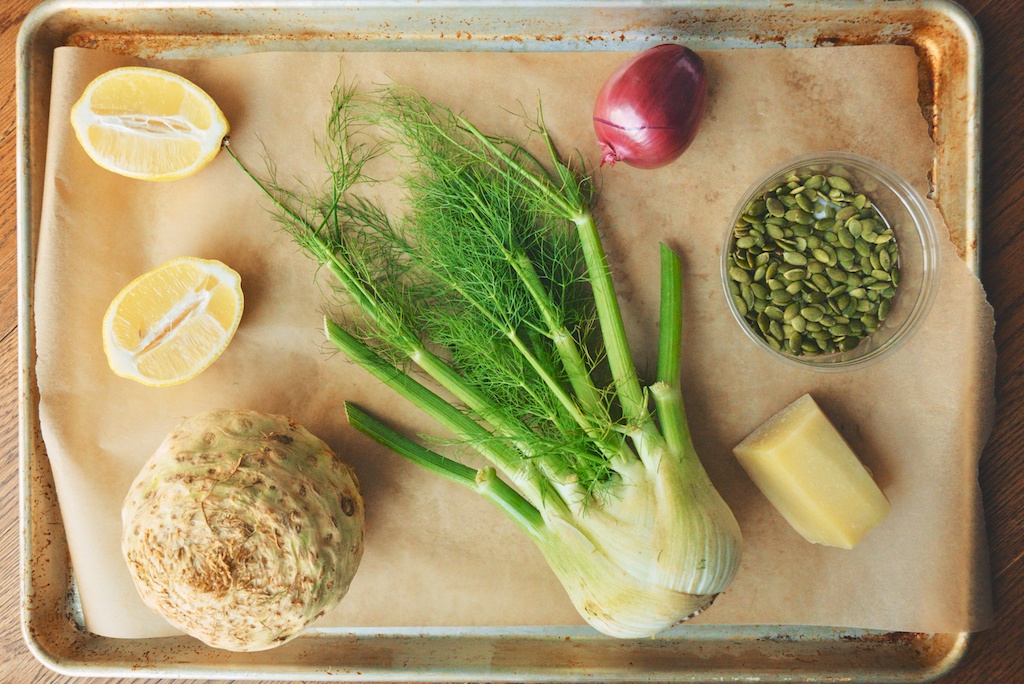

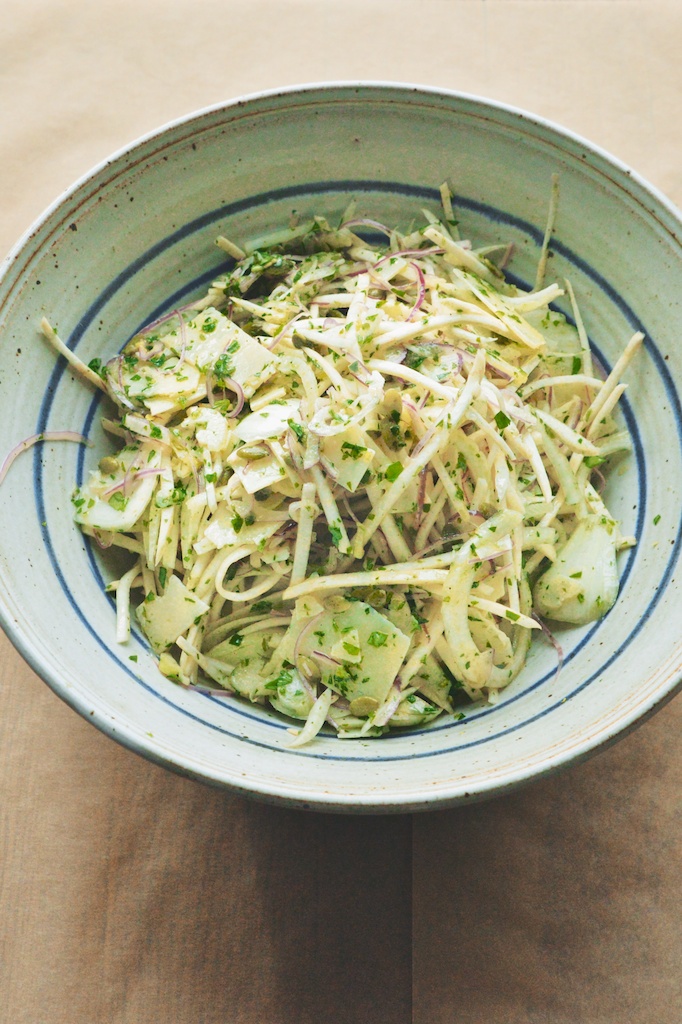
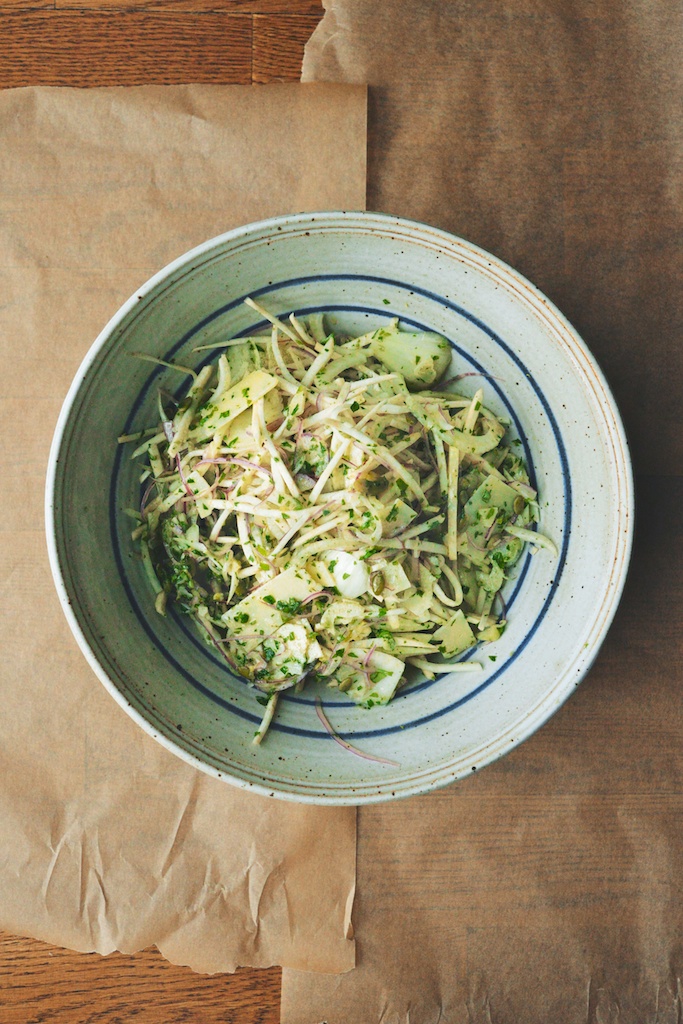
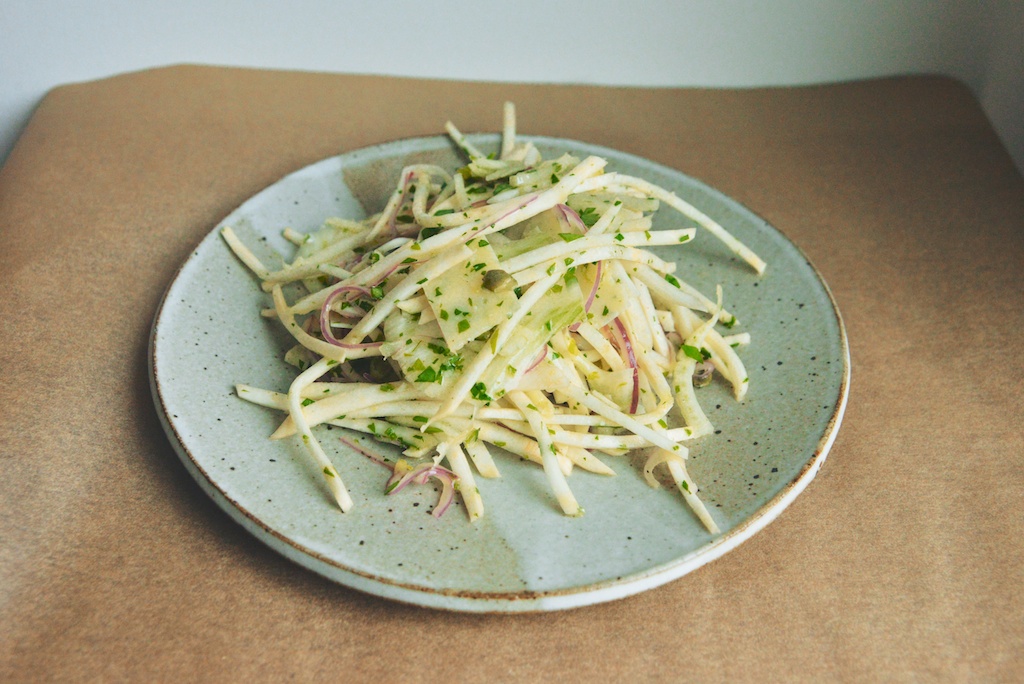
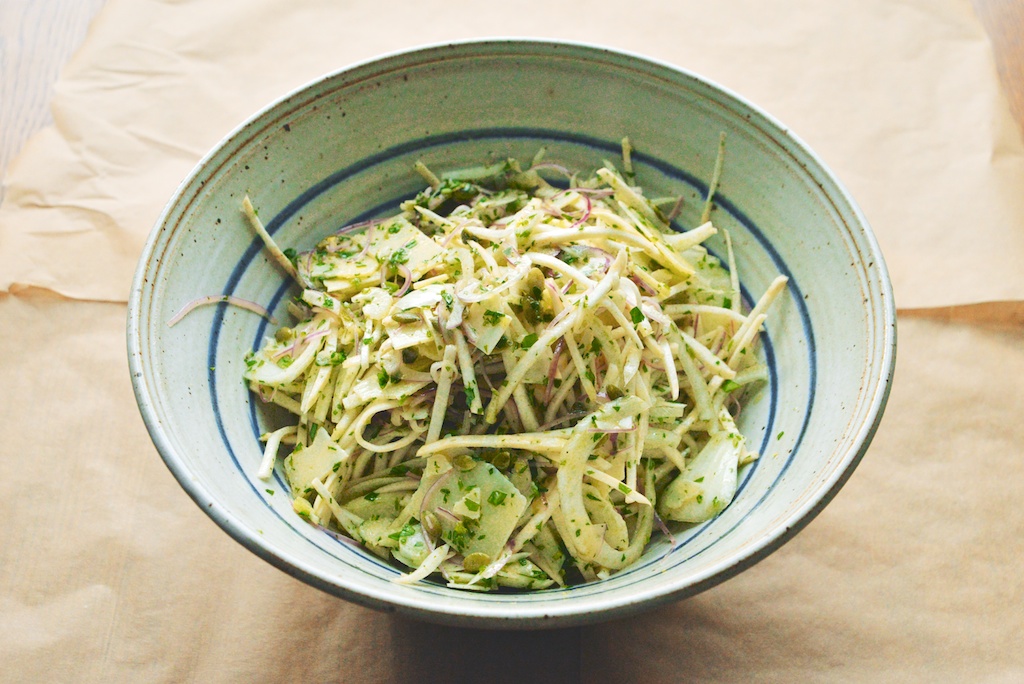
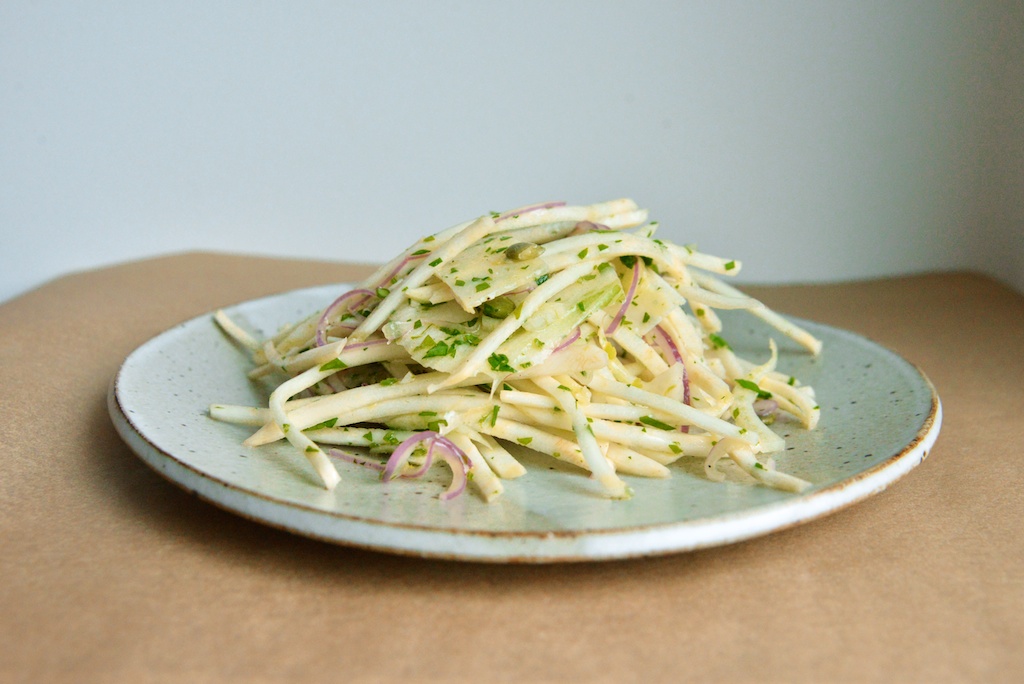
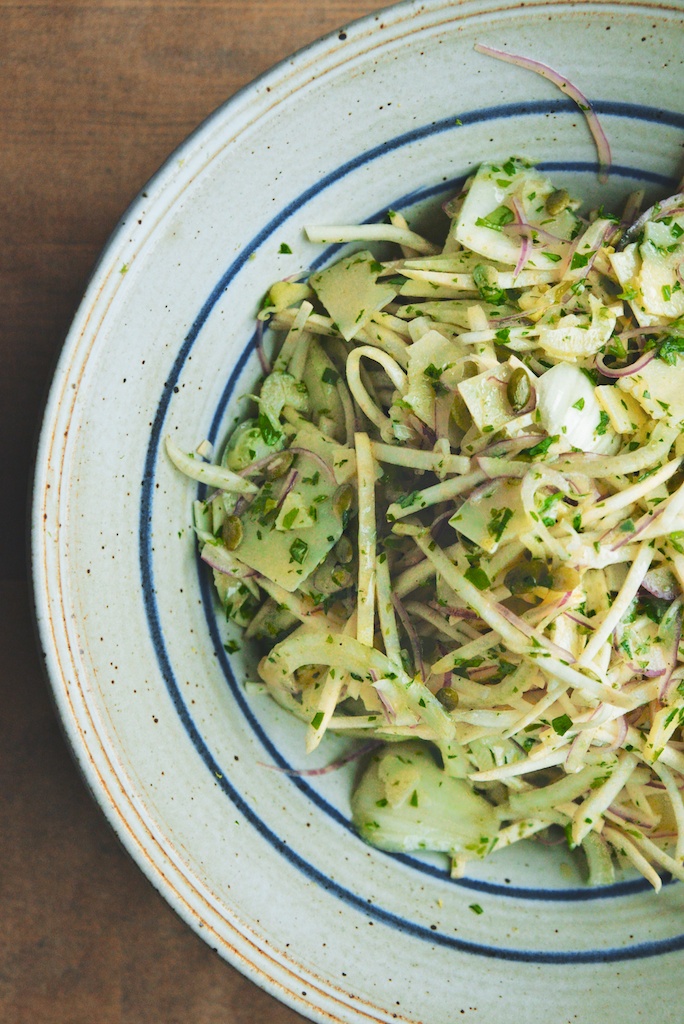
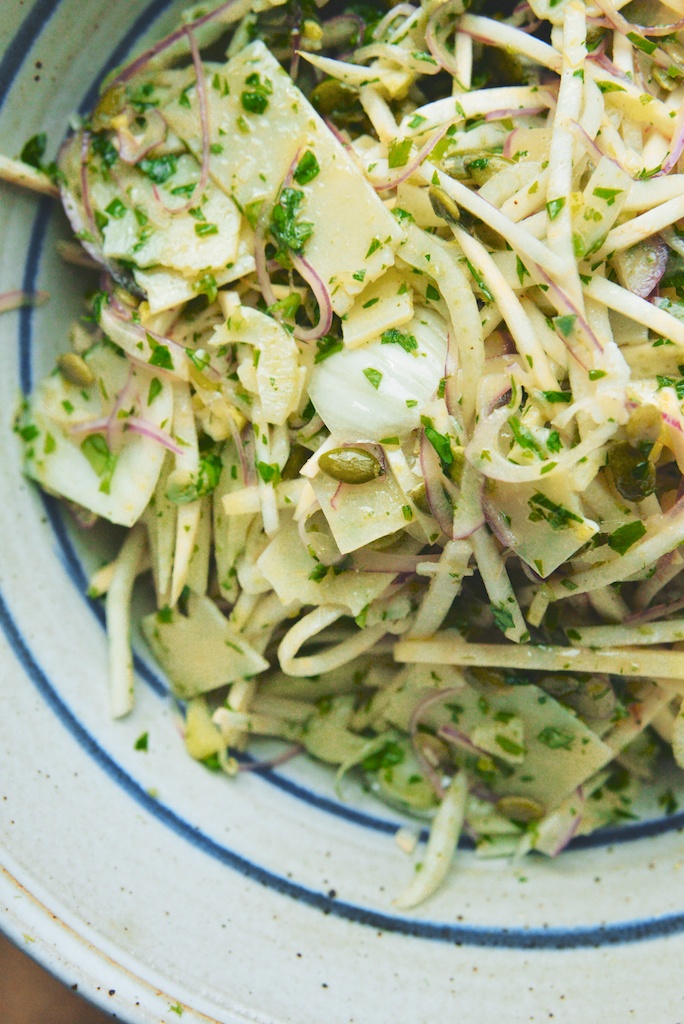
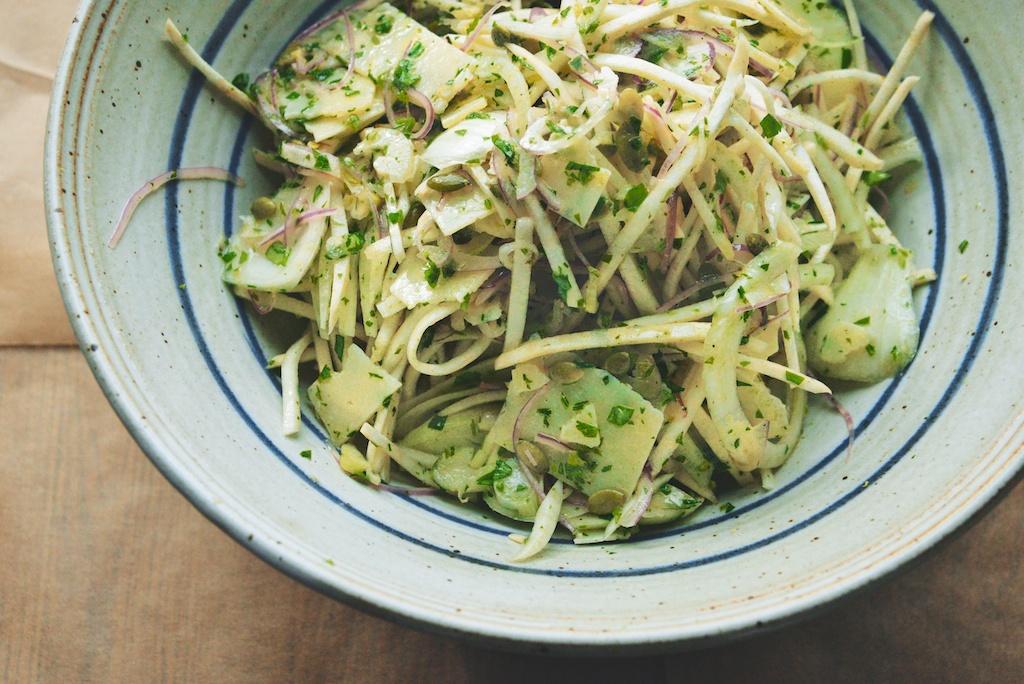
what a simple, calming salad!
Will try that. I make something similar — no celery root, but I throw in a can of sliced (rinsed/drained) water chestnuts and a handful of olives.